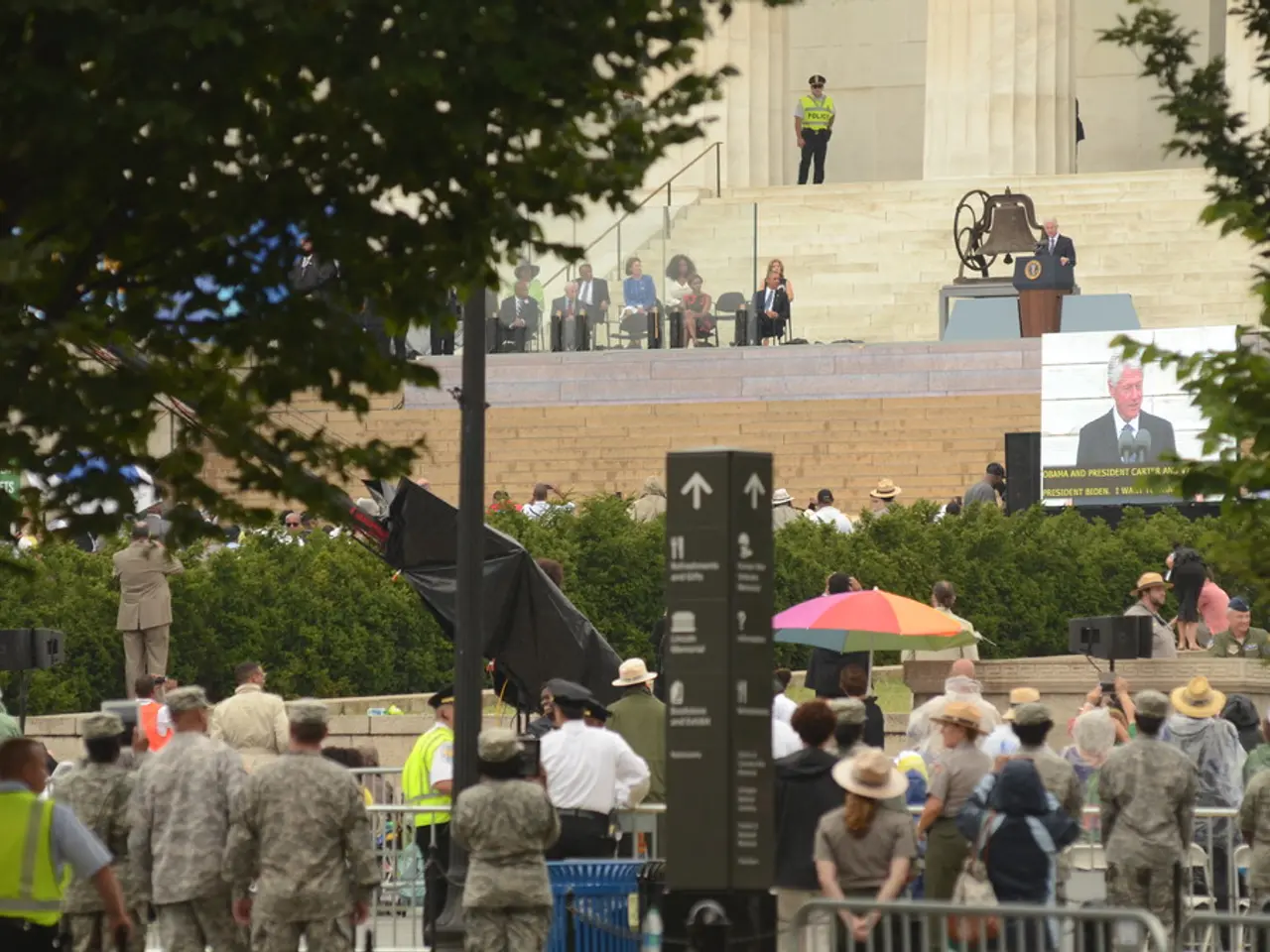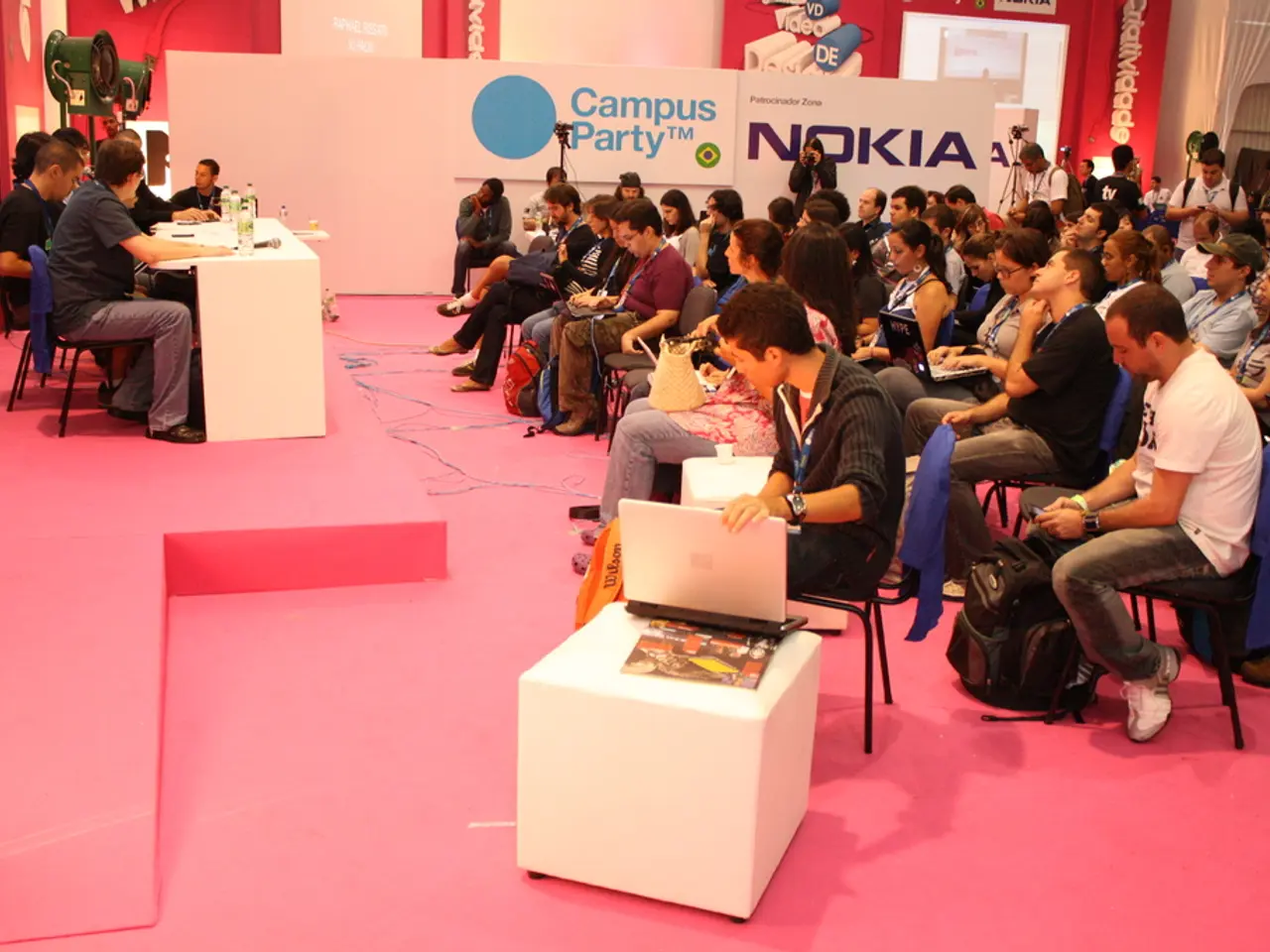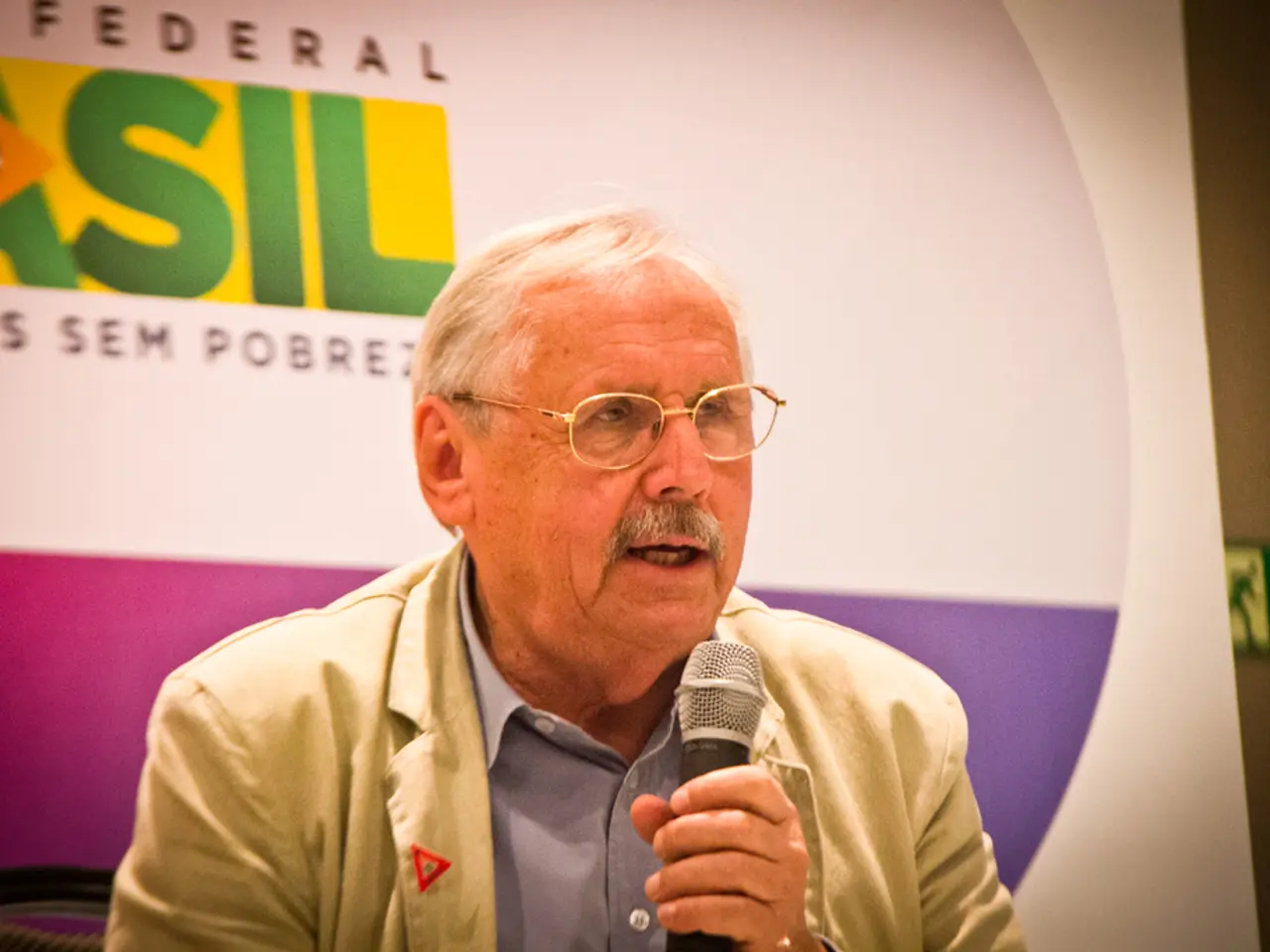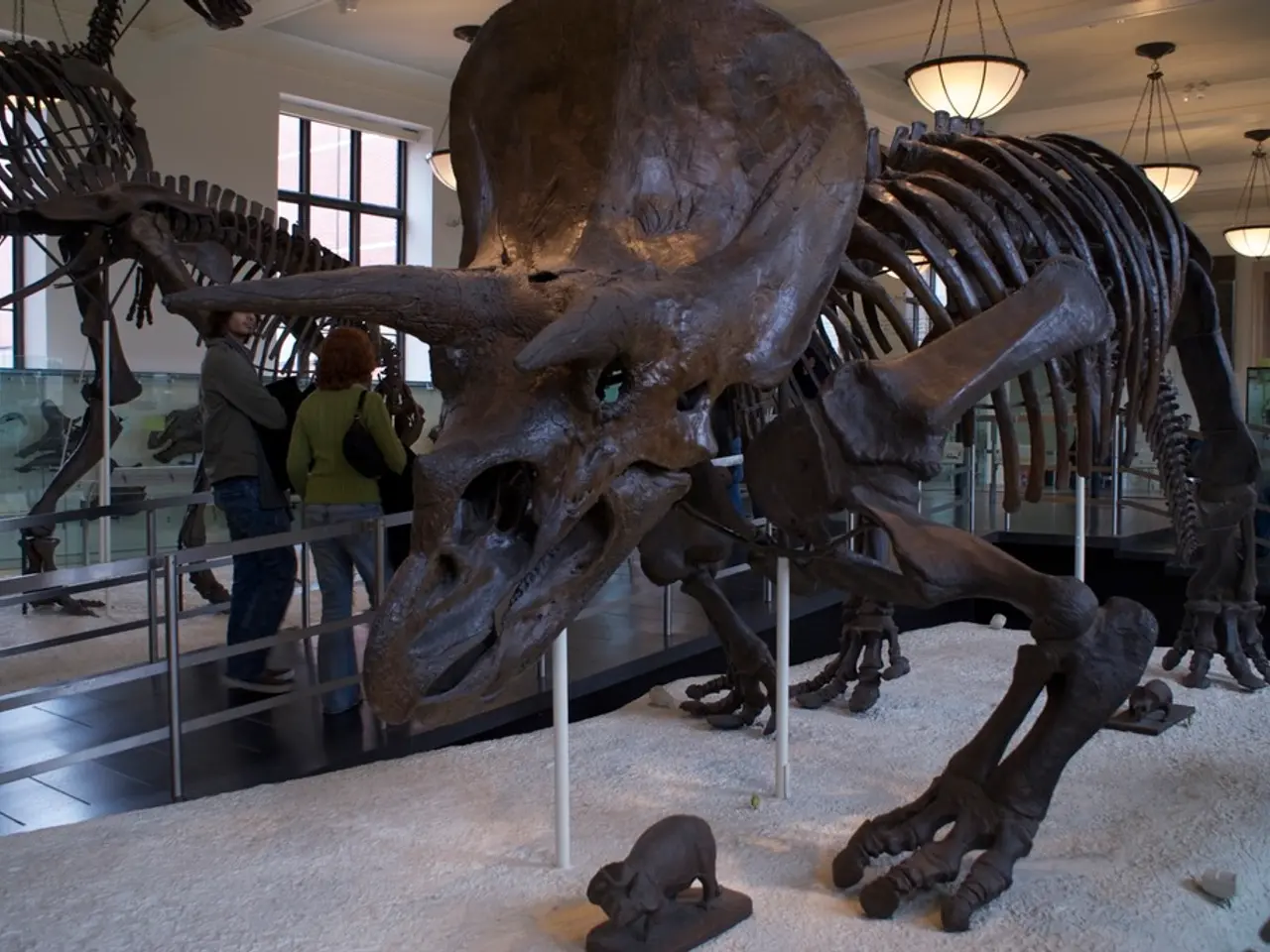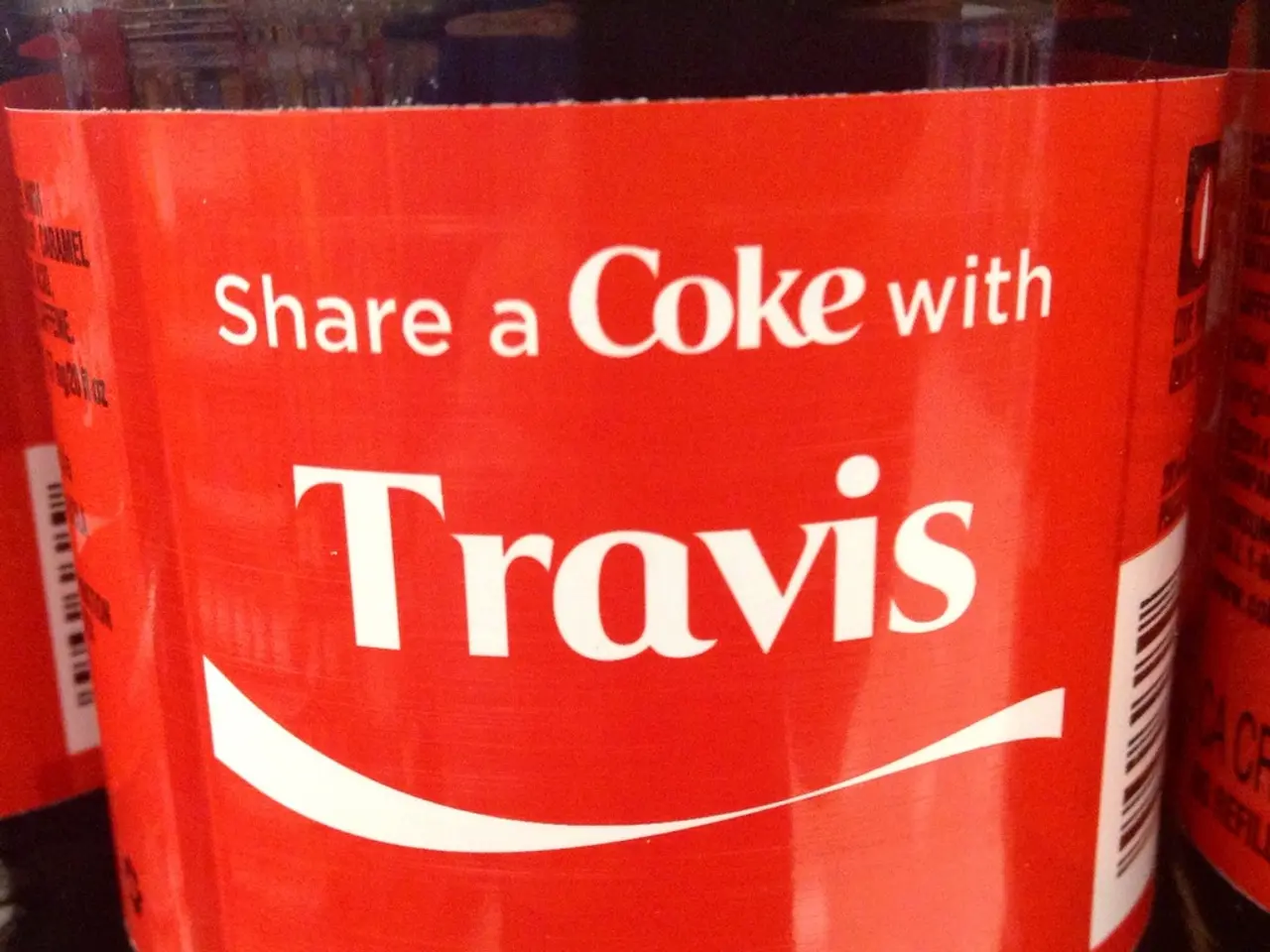Controversial remarks by the newly appointed chairperson of the Democratic Party stir up dissent among opposition parties.
In the politically charged atmosphere of South Korea, relations between the Democratic Party of Korea and the People Power Party (PPP) have reached new heights of tension. The recent political upheavals of 2025, including the removal and arrest of former President Yoon Suk Yeol, a key figure from the PPP, have deepened domestic political polarization [1][5].
Rep. Jung Chung-rae, the newly elected chair of the Democratic Party, has taken a critical stance against the PPP. As a proponent of democratization and inter-Korean reconciliation, Jung's position has become increasingly confrontational as political tensions escalate [4]. This confrontation is intensified by the PPP's association with Yoon Suk Yeol’s administration and controversies such as the martial law declaration and subsequent political crises [1][5].
Jung's stance contributes to a broader climate of partisan antagonism. The PPP is currently grappling with the fallout from Yoon's removal and arrest, which has weakened the party's position and fueled sharp partisan divides. The Democratic Party, under leaders like Jung, has likely taken a harder line against the PPP, framing it as responsible for political instability, thereby exacerbating polarization in the political landscape [1][5].
The PPP's senior spokesperson, Rep. Park Sung-hoon, has called on Jung to respect the institutional role of the opposition. However, Jung has stated he will not shake hands with members of the PPP unless they apologize. He has also warned of possible legal steps to disband the PPP if the special counsel investigation finds accomplices, abettors, or collaborators within the party [1].
Kim Moon-soo, another PPP candidate for leadership, likened Jung's remarks to a political manifesto aimed at pushing through the Democratic Party's reform agenda by October. Rep. Ahn Cheol-soo, another contender for the PPP leadership, described Jung's stance as a "declaration of war." The People Power Party has pushed back against Jung's declaration, with Rep. Joo Jin-woo criticizing his comments as politically opportunistic [1].
Kim Hyun-jung, the Democratic Party's floor spokesperson, stated that the People Power Party should be concerned about its own record of defending the Yoon administration's actions. At a separate campaign event, Kim Moon-soo suggested it is the People Power Party that should be disbanded, citing its alleged involvement in illegal remittances to North Korea [1].
The People Power Party is scheduled to elect its new chair at the party convention on Aug. 22, with Reps. Cho Kyoung-tae and Jang Dong-hyeok also in the race, in addition to Ahn, Kim, and Joo [1]. Jung reiterated the Democratic Party's commitment to rooting out "insurrectionist forces."
This political standoff reflects and amplifies the broader trend of escalating partisan conflict in South Korea’s politics in 2025, marked by a struggle over the legitimacy and direction of governance after the contentious exit of Yoon Suk Yeol and the rise of new leadership in the Democratic Party [1][3][5].
[1] https://www.reuters.com/world/asia-pacific/south-koreas-democratic-party-chair-vows-no-cooperation-opposition-2021-07-09/ [3] https://www.aljazeera.com/news/2021/7/9/south-korea-s-opposition-leader-vows-no-cooperation-with-main-rivals [4] https://www.nytimes.com/2021/07/09/world/asia/south-korea-democratic-party-opposition.html [5] https://www.bbc.com/news/world-asia-57738721
- The ongoing tension between the Democratic Party and People Power Party (PPP) in South Korea's political landscape is fueled by policy-and-legislation disputes and general-news headlines, as both parties take hardline stances on issues like the former President Yoon Suk Yeol's administration and political instability.
- Amid the heated debate, the PPP's efforts to regroup and select a new chair, scheduled for Aug. 22, are overshadowed by the Democratic Party's calls for accountability in matters related to policy-and-legislation, politics, and general news that have emerged during the period of domestic political polarization.
